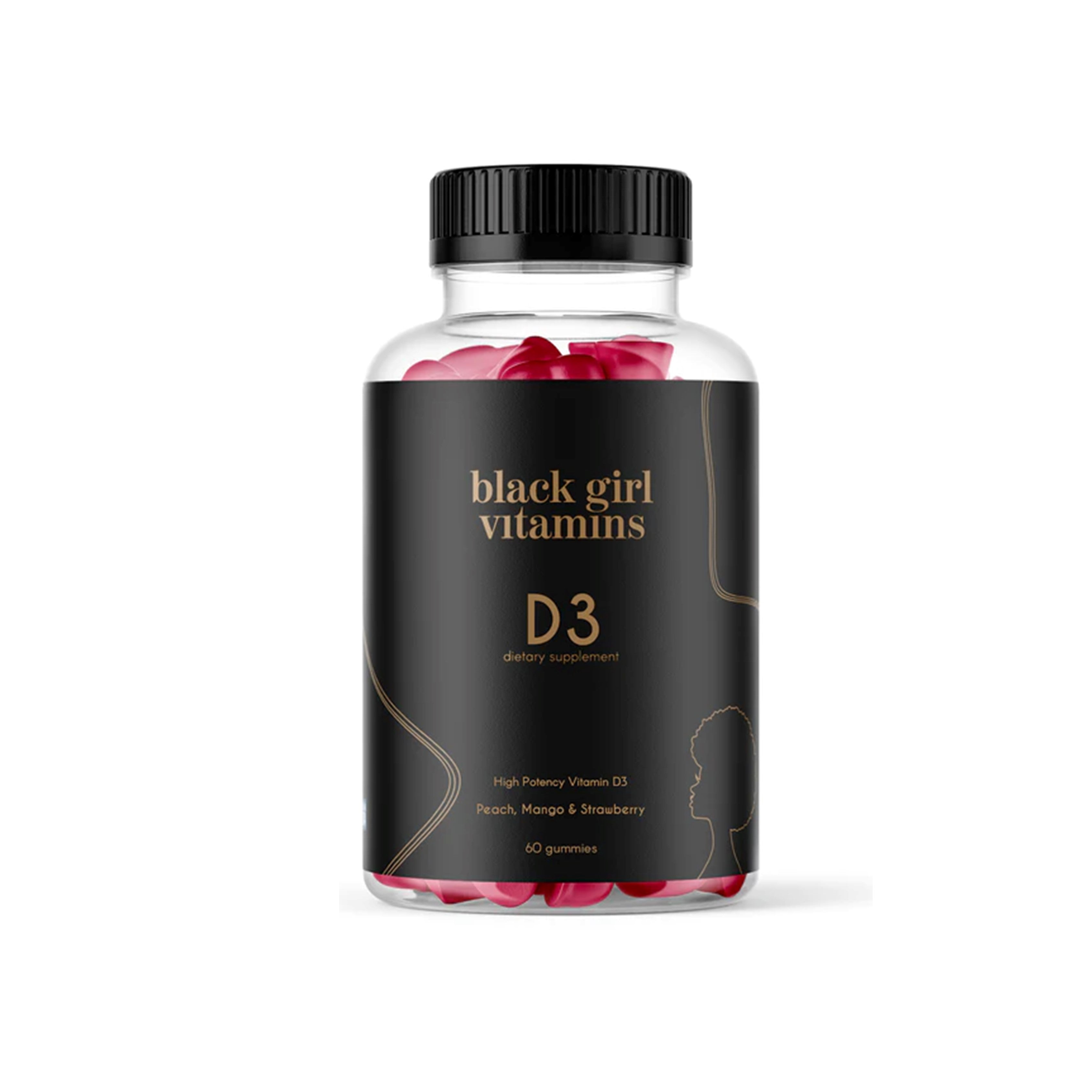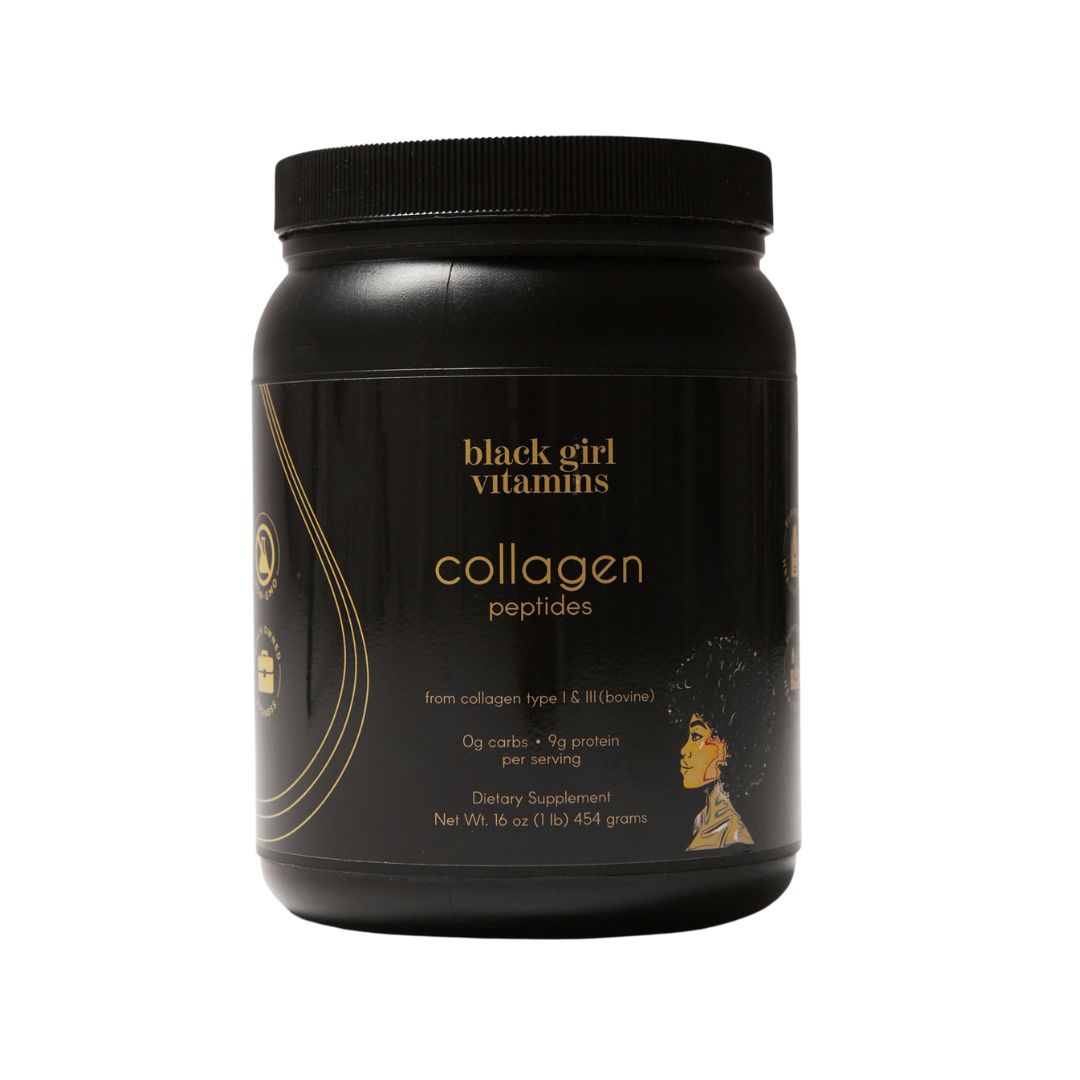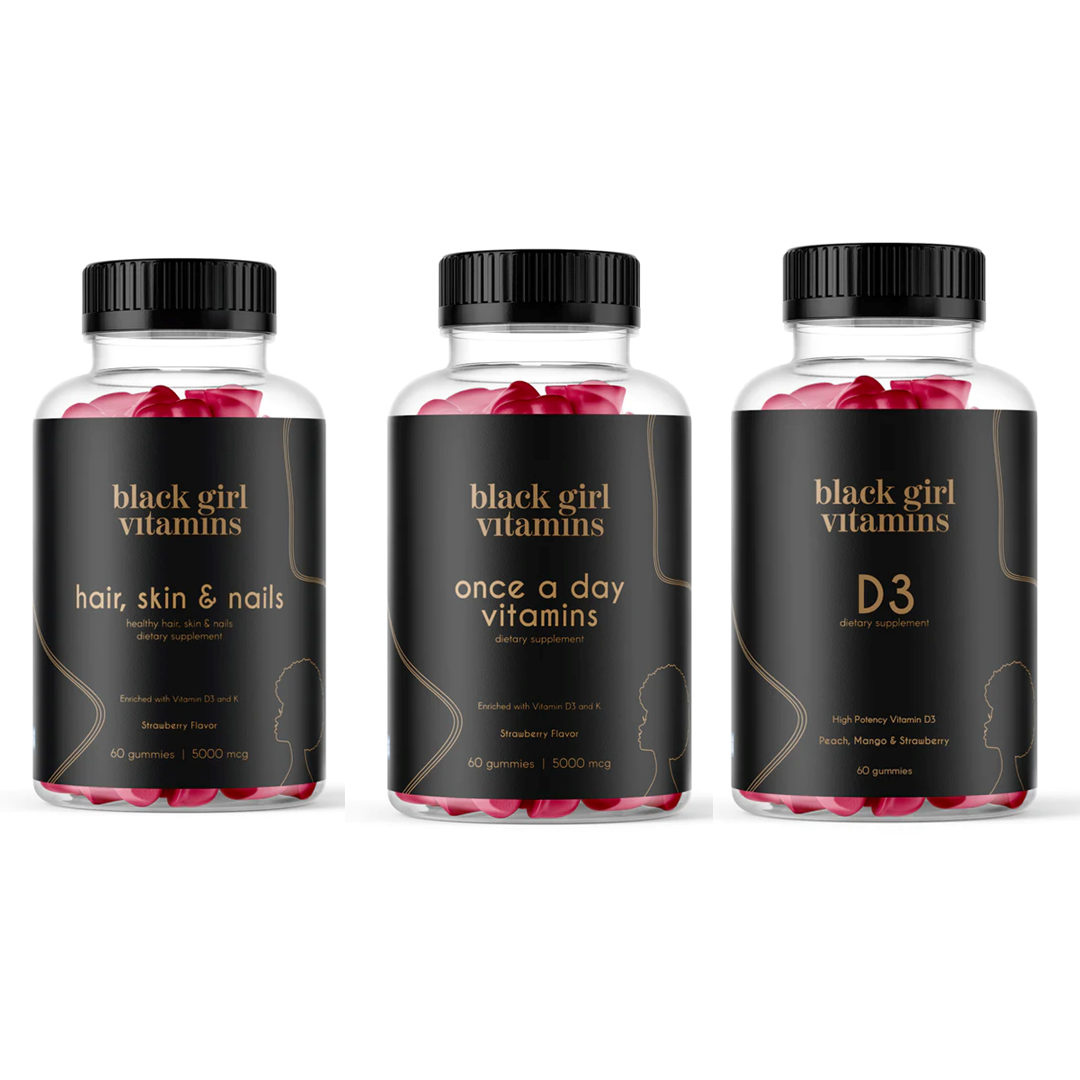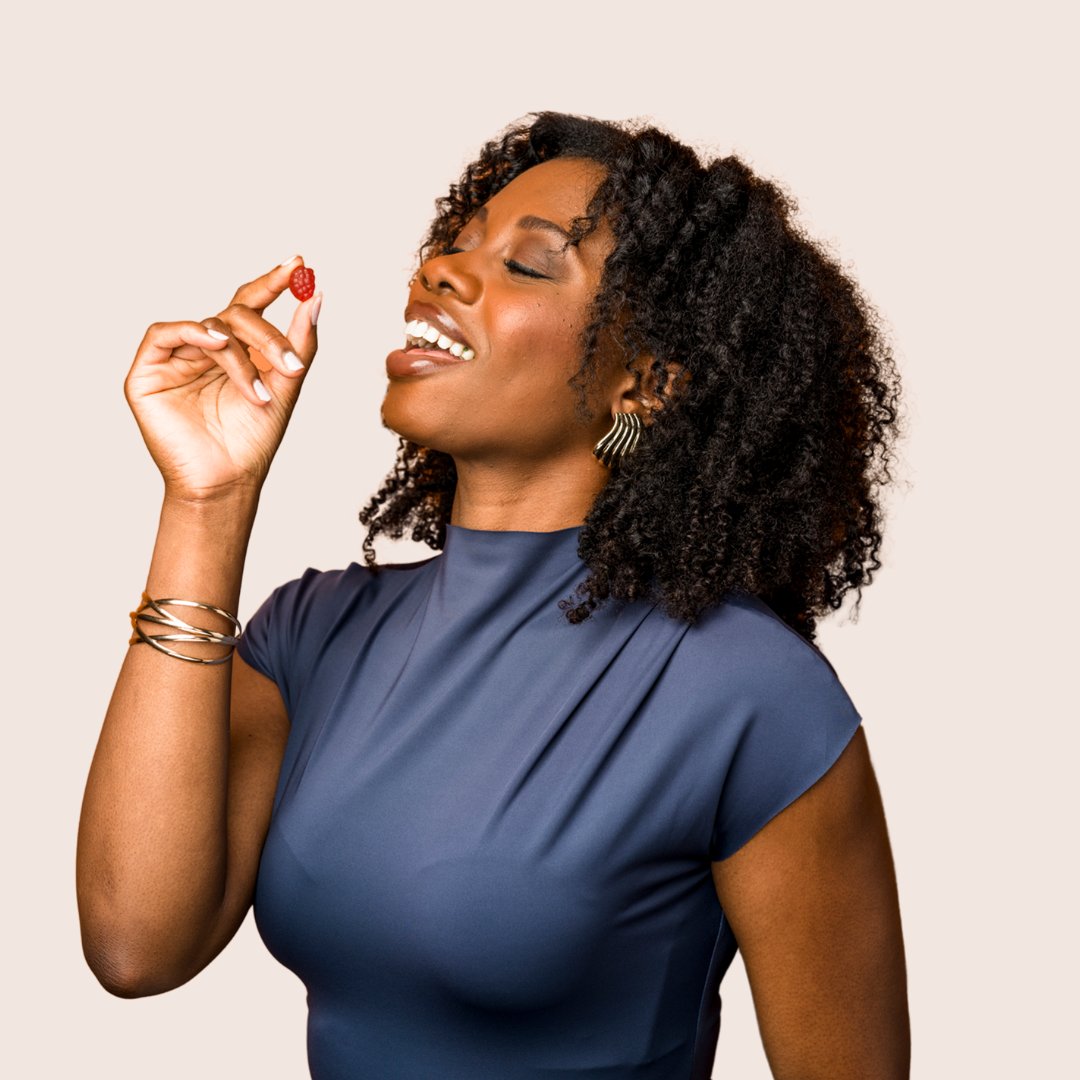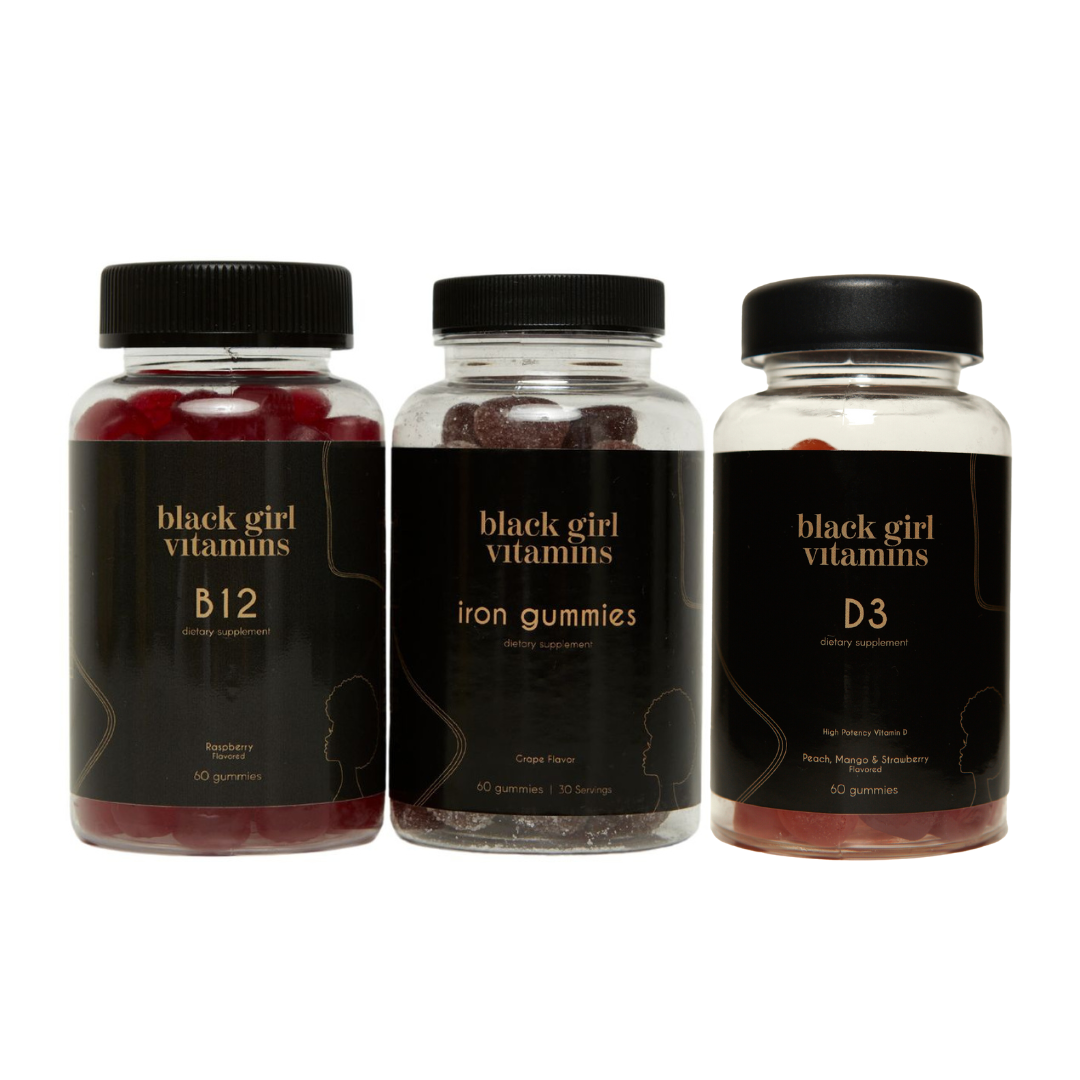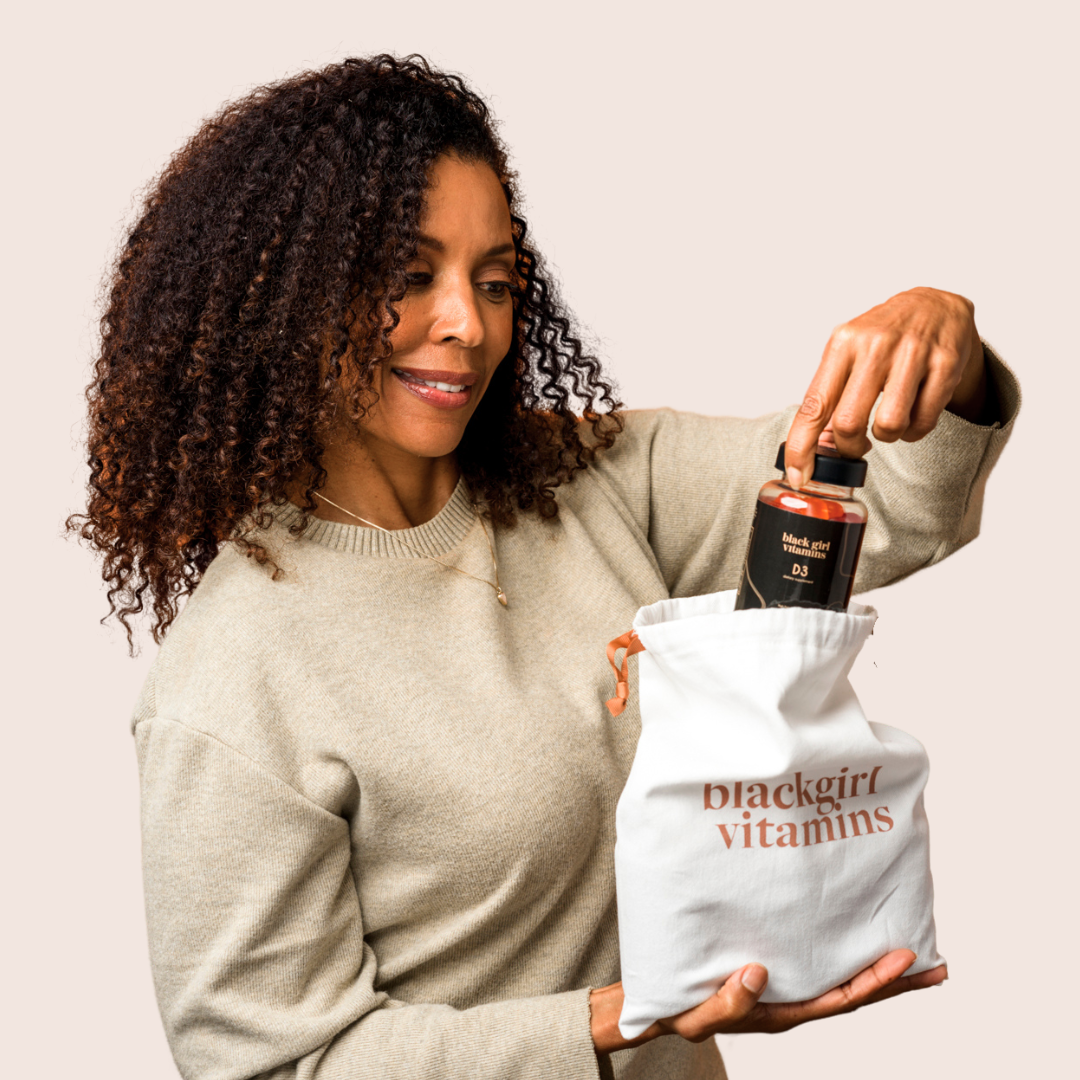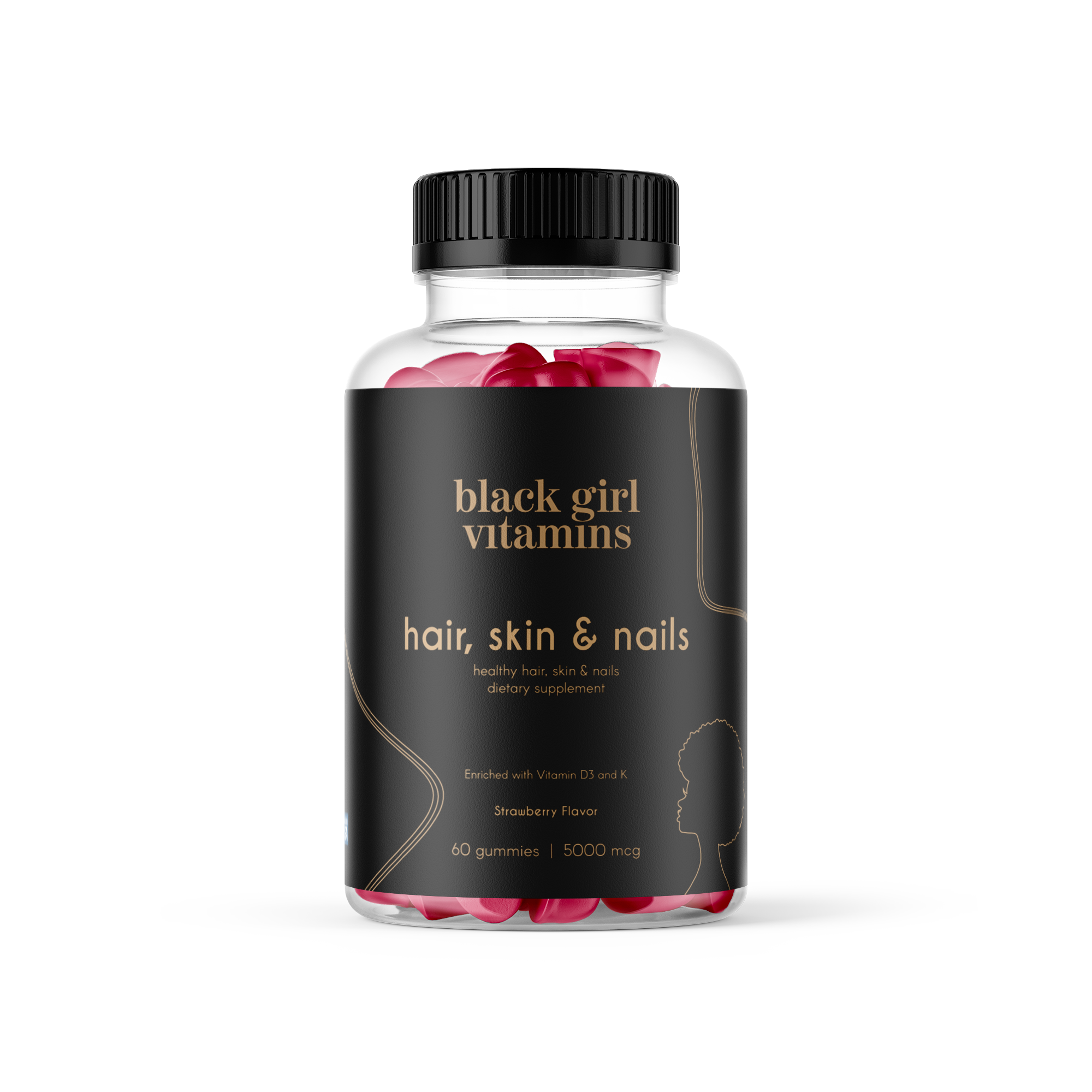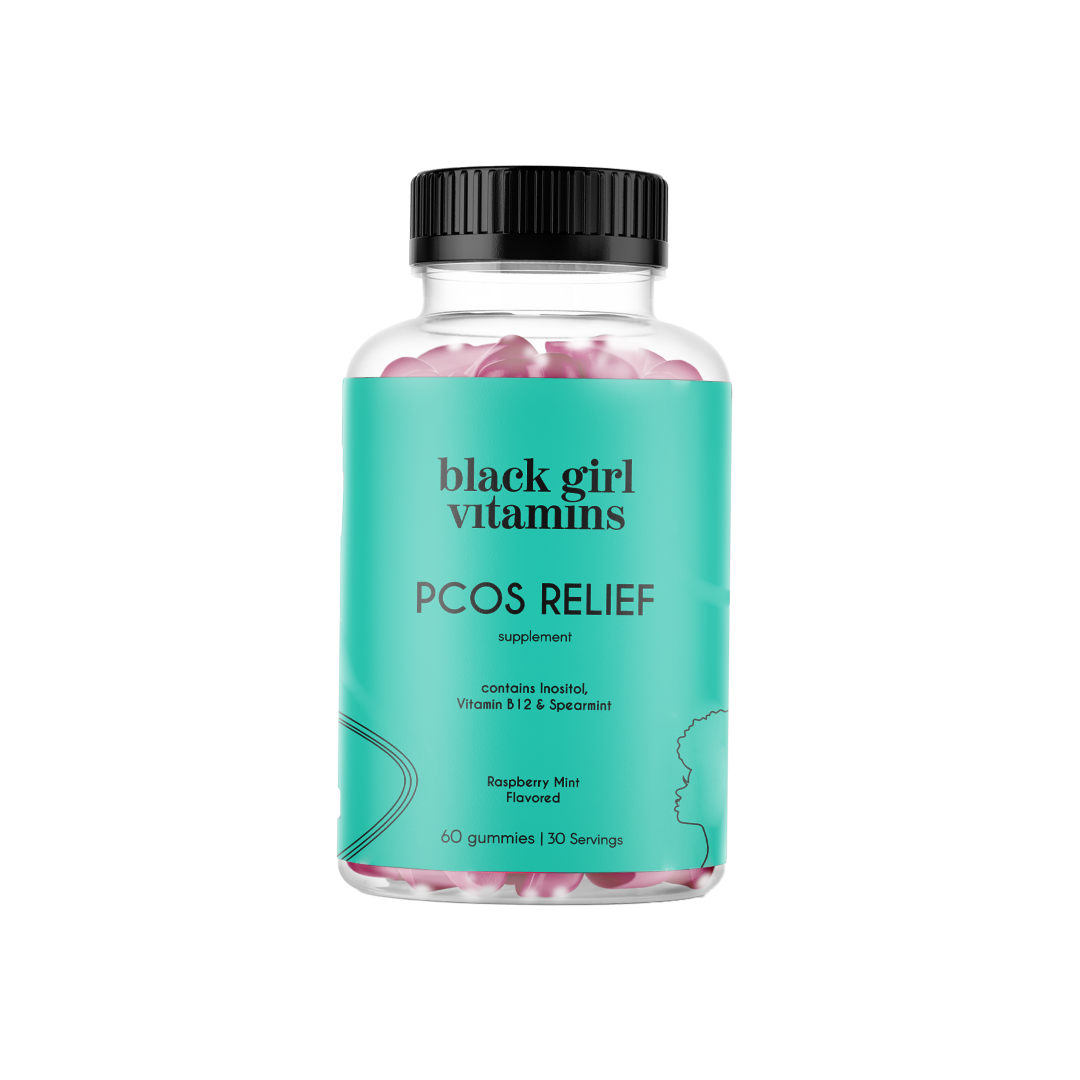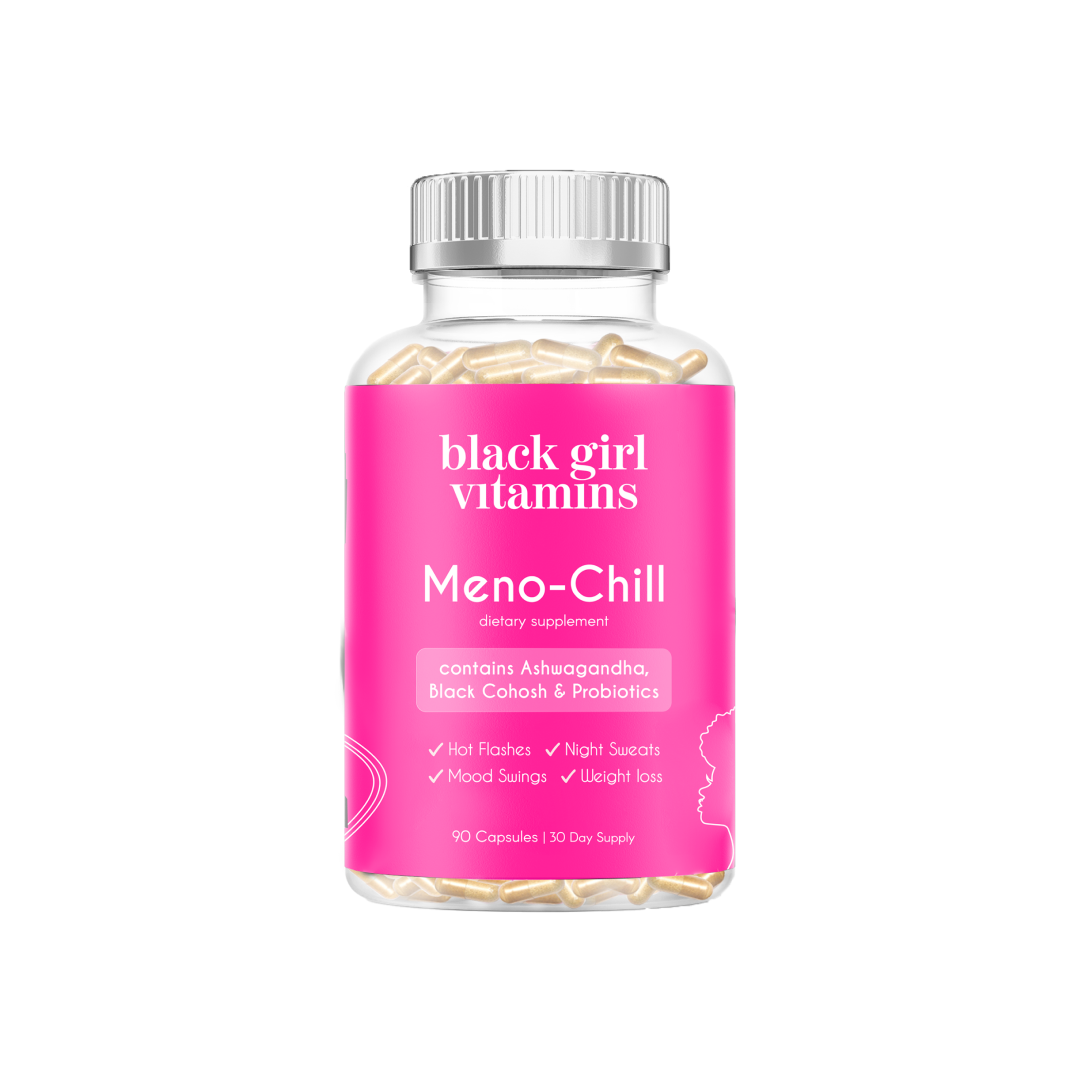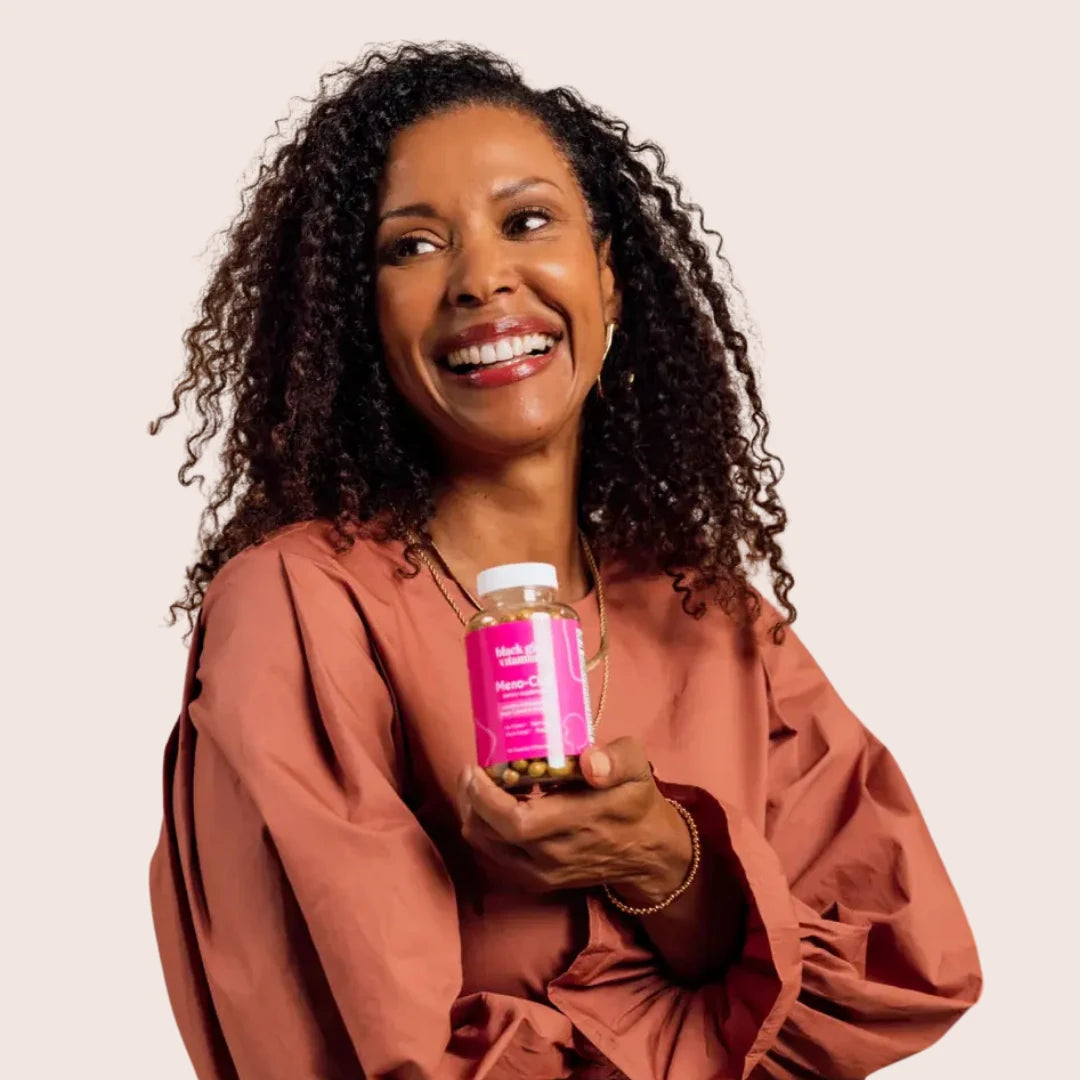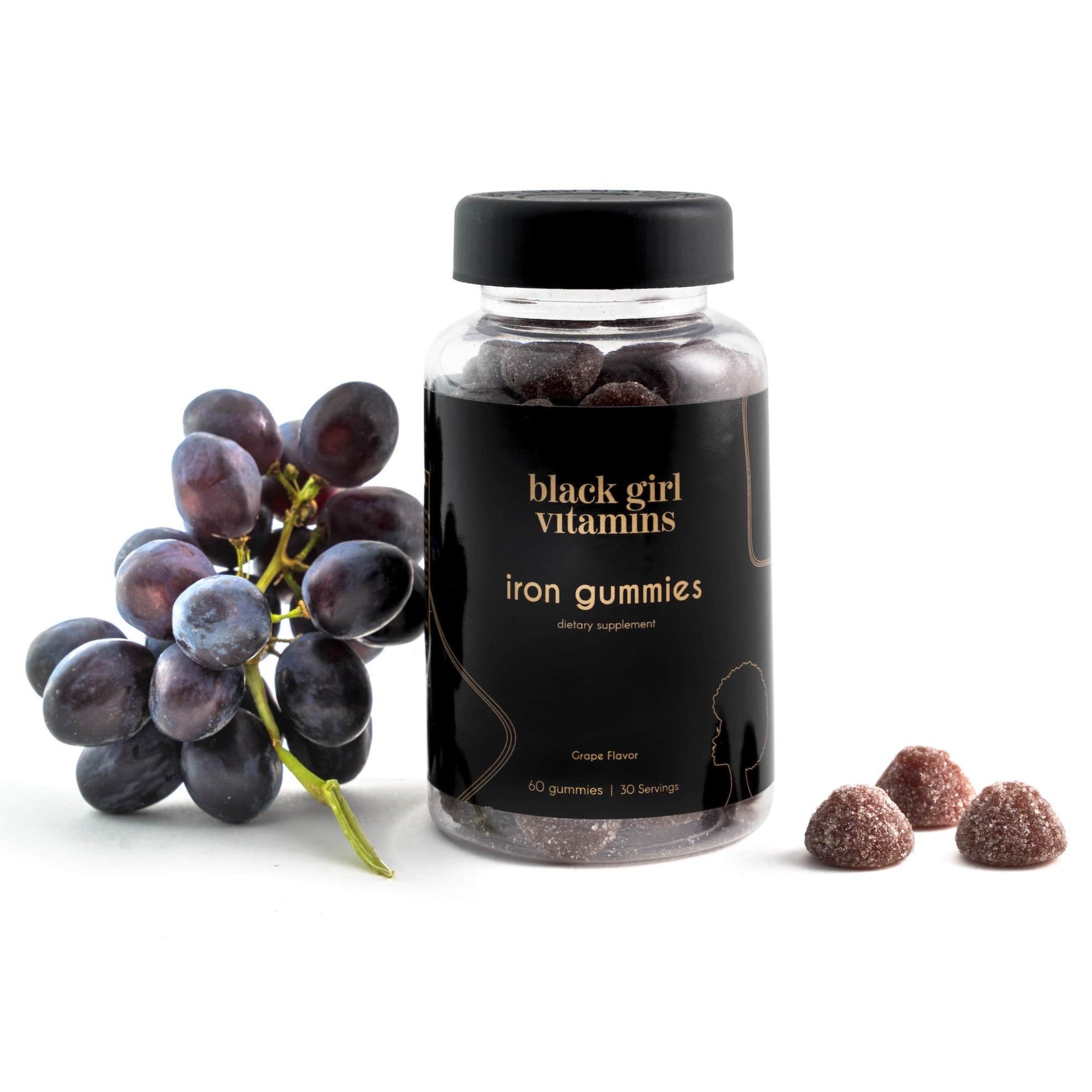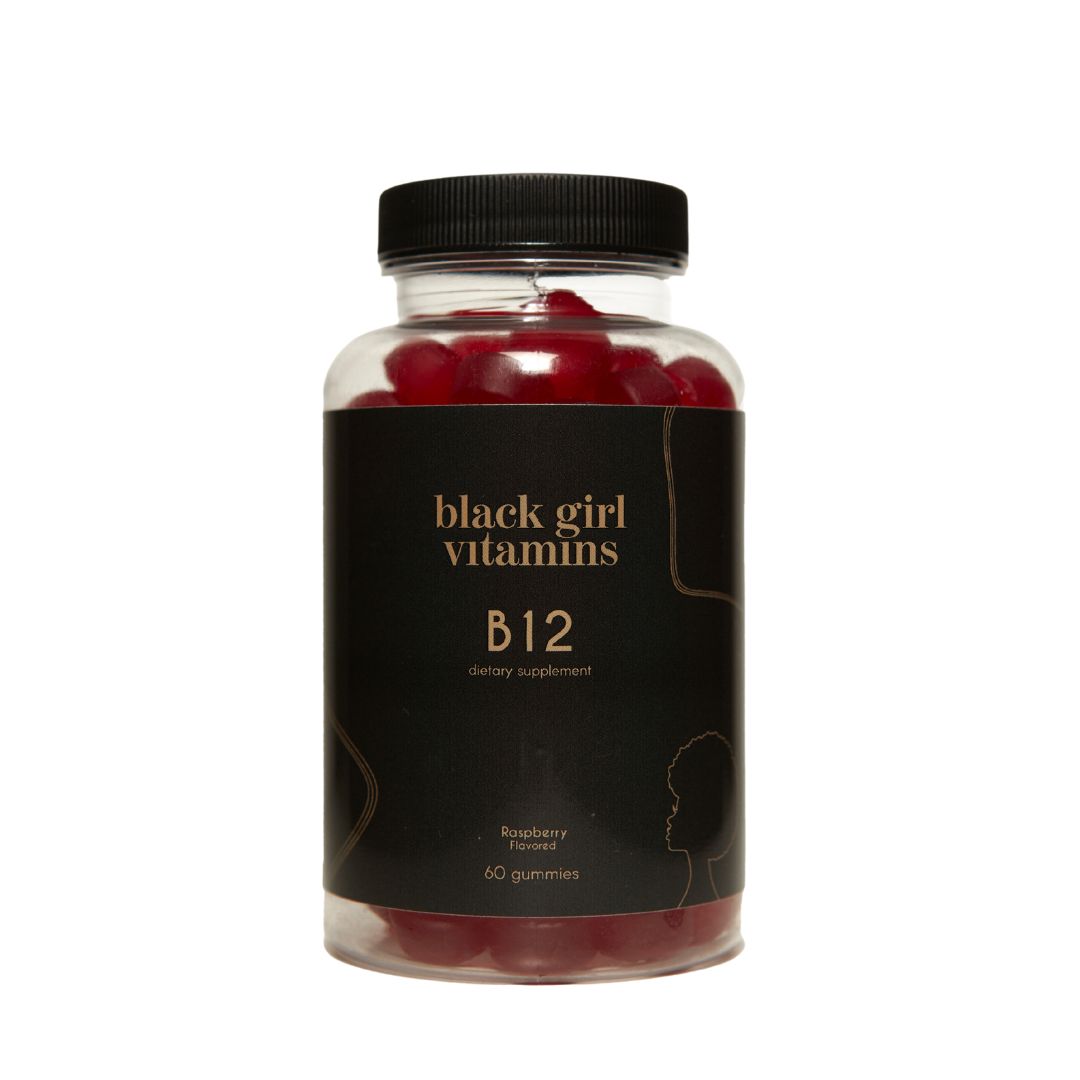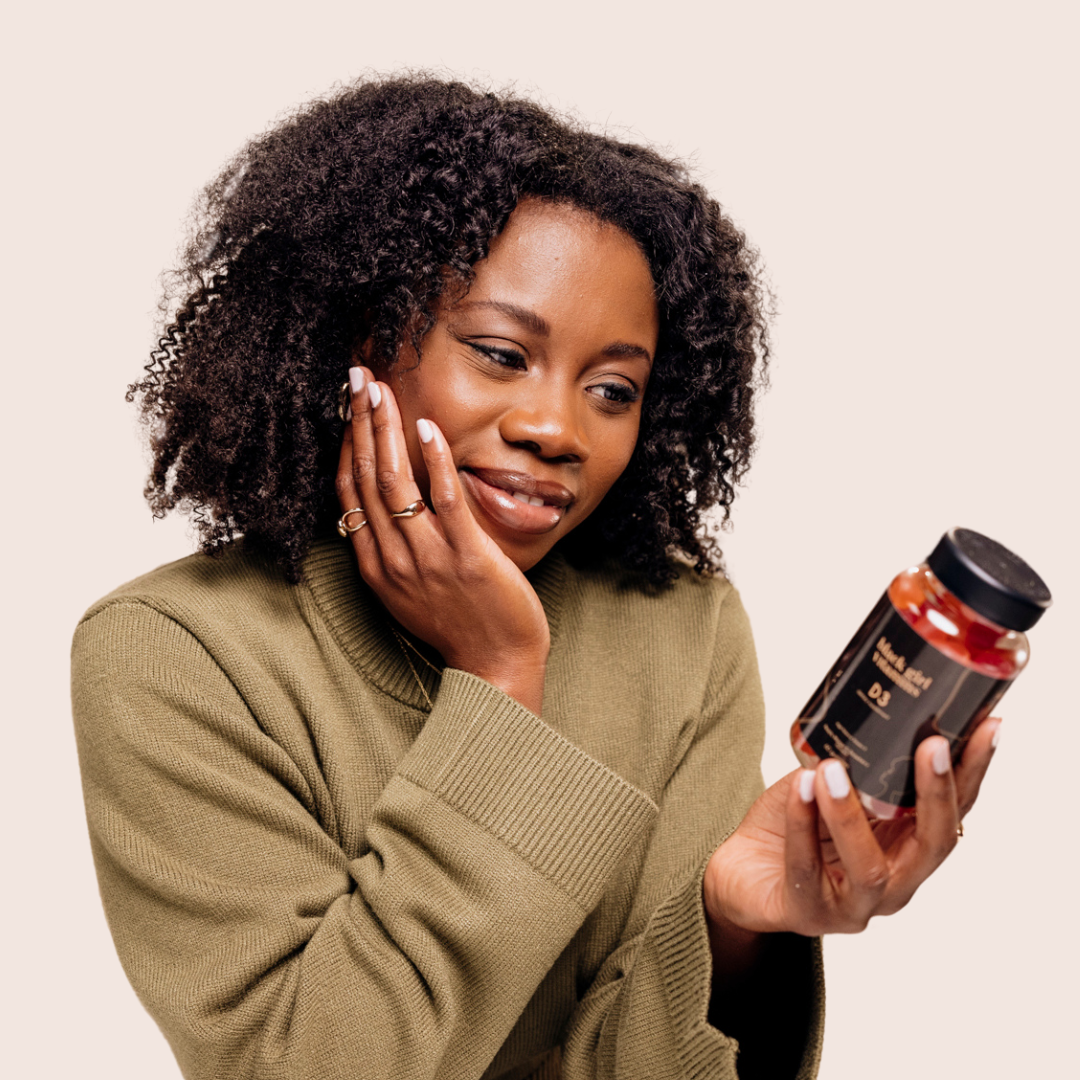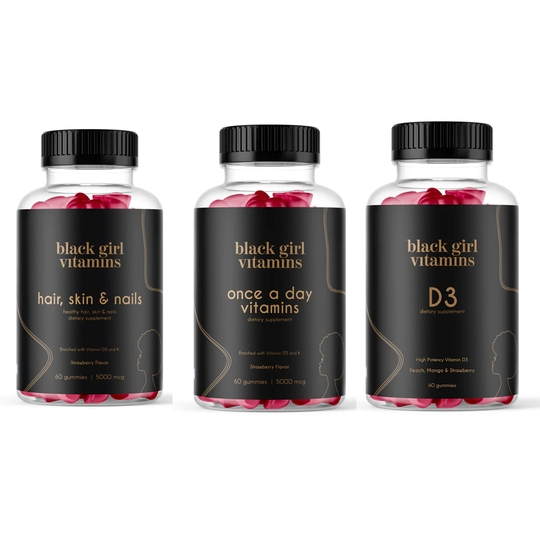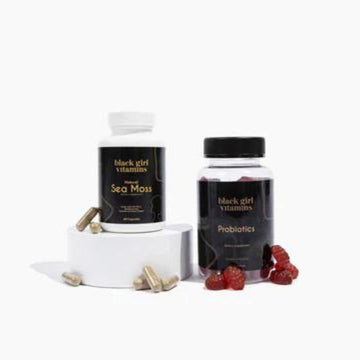Celebrating Menopause Awareness Month
Menopause Awareness Month: What Black Women Need to Know

October is Menopause Awareness Month, a time to shed light on an important but often overlooked stage in women’s health. Menopause marks the end of menstruation, but perimenopause is where many of us feel the biggest shifts. For Black women, those shifts often start earlier, last longer, and hit harder compared to other groups.
Yet, despite the impact menopause has on our bodies, minds, and daily lives, it’s still surrounded by silence, stigma, and lack of support. This month, Black Girl Vitamins is breaking down what menopause really means, how it uniquely affects Black women, and how we can care for ourselves through it all.
The Breakdown: What Is Perimenopause?
Menopause doesn’t just happen overnight. There’s a whole transition period called perimenopause, when hormone levels begin to decrease. This stage is your body’s way of slowly shifting into menopause.
Here’s what you need to know:
-
Perimenopause usually starts between ages 40–44, but it can happen as early as your 30s or as late as your 50s.
-
The length varies: for some women, it’s a few months; for others, it can stretch out up to 8 years.
-
The official start of menopause is marked by 12 months without a period — but perimenopause is where most of the symptoms show up.
Think of perimenopause as the “preseason” of menopause. It’s the part that really sets the stage, and for many Black women, it’s also where the struggles are the toughest.
Symptoms & Disparities: Why Menopause Hits Black Women Harder
Here’s the reality: menopause doesn’t look the same for everyone. Research shows clear disparities in how Black women experience perimenopause compared to white women.
The Facts:
-
50% of Black women report hot flashes and night sweats as their bodies change, compared to 33% of white women.
-
Symptoms often begin 8–10 years earlier and can be more severe and longer-lasting.
-
Black women are also less likely to receive hormone therapy or other treatment options, leaving many to push through symptoms without support.
That means what’s often dismissed as “just a phase” can actually be a decade of physical and emotional challenges for Black women.
Common symptoms include:
-
Hot flashes & night sweats that can disrupt sleep
-
Irregular or heavy periods
-
Weight gain, especially around the midsection
-
Trouble sleeping
-
Libido changes
-
Mood swings or anxiety
-
Memory or focus issues (sometimes called “brain fog”)
And these aren’t just inconveniences, they affect relationships, careers, self-esteem, and long-term health.
Why Menopause Awareness Month Matters for Black Women
So, why take a whole month to focus on menopause? Because for too long, the conversation has excluded Black women’s realities. Here’s why awareness matters:
-
Earlier & Longer Transitions
Black women often enter perimenopause nearly a decade earlier than white women. Imagine dealing with hot flashes, night sweats, and sleep disruption in your 30s — all while raising kids, working, or caring for parents. That extra time in transition means more years of symptoms. -
Health Disparities in Care
Studies show Black women are less likely to be offered treatments like hormone therapy. Our symptoms are too often dismissed as “just stress” or “something you’ll get over.” This lack of care deepens the impact of menopause on our lives. -
Impact Beyond Symptoms
Menopause affects more than your cycle. Lower estrogen levels can increase risks for heart disease, osteoporosis, and mental health struggles. For Black women — who already face higher risks for these conditions — the stakes are even higher. -
Ending the Silence
Menopause is still a taboo topic in many communities. Awareness Month gives us space to break the stigma, normalize these conversations, and remind women they don’t have to suffer in silence.
How to Care for Yourself Through Menopause

While menopause can feel overwhelming, there are ways to support your body and mind during this stage:
-
Track your symptoms. Write down what you’re feeling — hot flashes, mood swings, cycle changes — so you can bring clear information to your doctor.
-
Prioritize sleep. Lack of rest makes symptoms worse. Create a calming bedtime routine, limit screen time, and keep your room cool.
-
Move your body. Exercise helps with weight management, mood swings, and bone health. Even walking counts.
-
Focus on nutrition. Foods rich in calcium, vitamin D, magnesium, and omega-3s can support bone and heart health.
-
Talk to your doctor. Be direct and advocate for care. If your provider dismisses your symptoms, don’t be afraid to seek a second opinion.
-
Lean on your community. Menopause doesn’t have to be isolating. Sharing your journey with friends, family, or support groups can make it easier.
BGV’s Role: Support Beyond Supplements

At Black Girl Vitamins, we know menopause is more than “just hot flashes.” It’s a life transition that deserves care, compassion, and real solutions. That’s why we created Meno-Chill, a natural supplement designed to help ease hot flashes, support better sleep, and promote balance during perimenopause and beyond.
Meno-Chill is part of our commitment to meeting Black women where we are — creating products that speak to our needs while also pushing for education, research, and better healthcare conversations.
Because while supplements like Meno-Chill can provide relief, the bigger picture is making sure Black women have the tools, knowledge, and advocacy to thrive during menopause — not just survive it.
The Takeaway
Menopause Awareness Month is about making the invisible visible. For Black women, the transition into menopause comes earlier, lasts longer, and often feels harder. But by sharing knowledge, breaking the stigma, and advocating for ourselves, we can shift the narrative.
You are not alone in this journey. Whether you’re just beginning to notice changes or already deep in perimenopause, remember: your experience is valid, and support is out there.
This month, let’s normalize the conversation about menopause — for ourselves, for our daughters, and for the generations coming after us.
Explore Meno-Chill and other BGV supplements designed with Black women in mind, and join us in making menopause wellness a priority.





